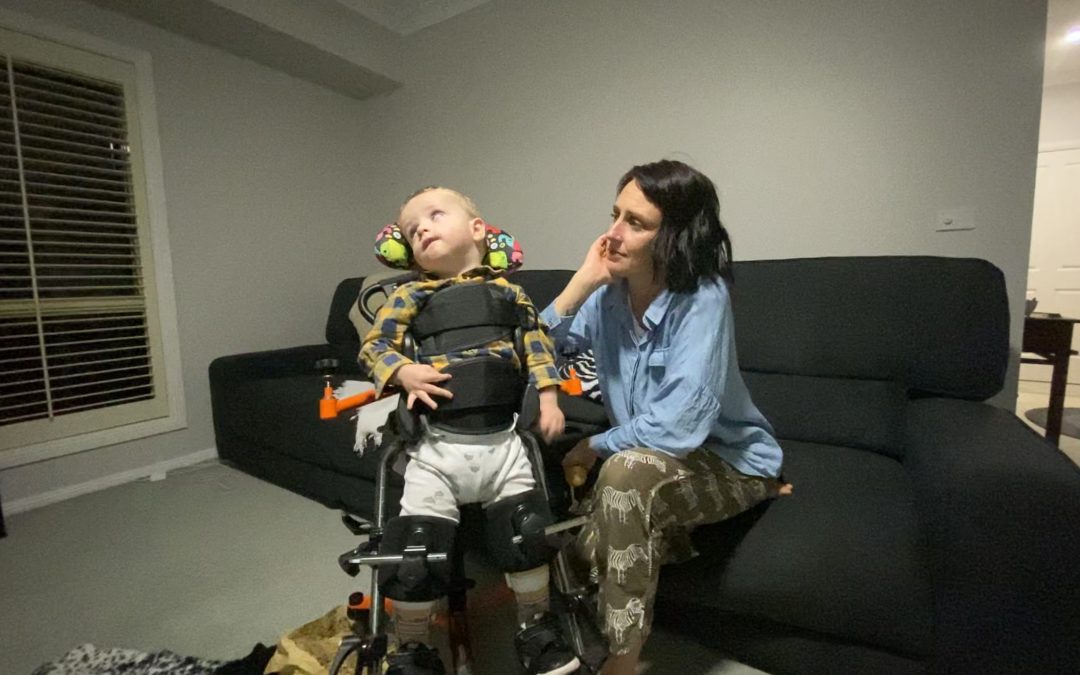There are fears that children with disabilities may suffer a reduced quality of life following a reliance on video based therapies during the pandemic.
With the majority of face-to-face sessions being cancelled to protect the health of providers and clients, most therapies are currently conducted via regular video calls.
Wollongong mum Rebecca Gatrell, whose son Mason is dependent on four different therapies delivered online, said that after a few months without face-to-face contact with specialists it has become increasingly difficult to assess his needs.
“During the pandemic and cancellation of face-to-face therapies, Mason has received important equipment which has been very difficult to navigate safely without help from his therapists,” Ms Gatrell said.
“I do worry that if either his health or development decline during the pandemic, he would suffer without face to face support.
“I just hope my own personal assessments and therapy will be enough.”
Royal Institute for Deaf and Blind Children, vision therapist Kristen Hill has raised concerns over the quality of essential therapies during this time.
“Many would have no experience in providing therapy via video call so it can be quite a daunting prospect,” she said.
“I expect that some may find it all too hard and clients may be missing vital services.”
The NDIS Commission is providing information and advice to providers about their obligations, including strategies to reduce exposure to COVID-19 and maintain a continuous high level of support.
Ms Hill said that she has issues with the NDIS’s strategies during COVID-19, including the increased prices.
“I have concerns that the increased prices that NDIS are allowing for therapies during this period will leave participants short of funds as their plans have not been topped up,” Ms Hill said.
“I also worry that some organisations may choose to continue video calls to save money rather than considering the interests of their clients.”
According to the Australian Government Health website, receiving therapies via telehealth is a temporary measure, in place until September 30.
The government has launched a helpline dedicated to people with disability who are concerned or have questions about COVID-19.
The helpline number is 1800 643 787.
For more information, resources and facts on coronavirus, visit: www.health.gov.au

